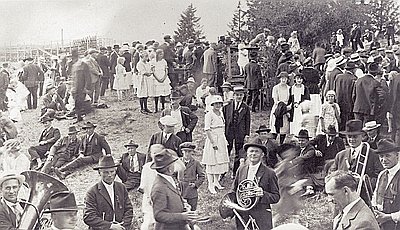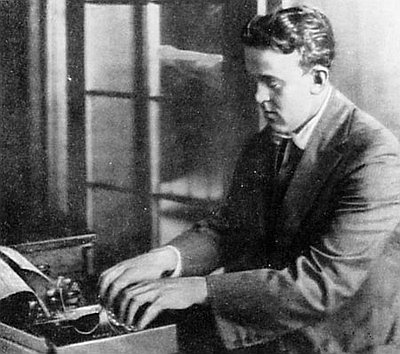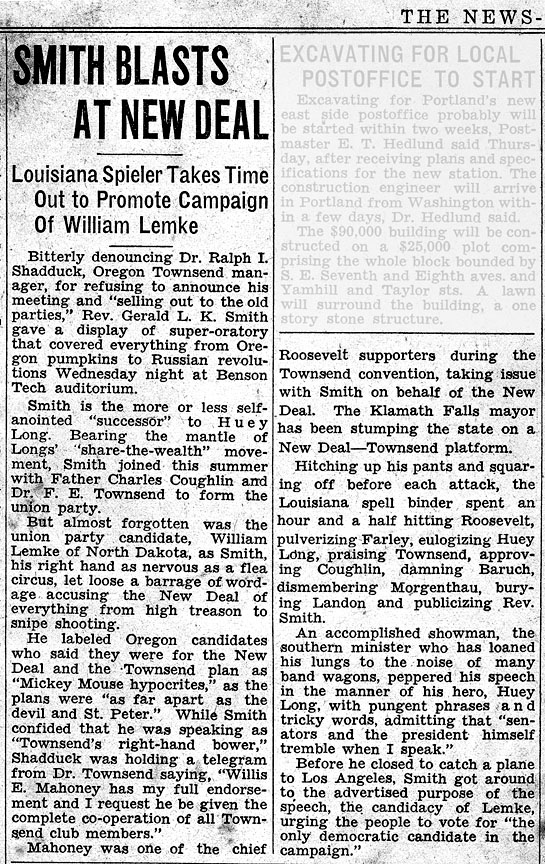- Catalog No. —
- Mss 1334
- Date —
- October 1936
- Era —
- 1921-1949 (Great Depression and World War II)
- Themes —
- Arts, Government, Law, and Politics, Labor, Religion
- Credits —
- Oregon Historical Society
- Regions —
- Portland Metropolitan
- Author —
- The News-Telegram
News Article, Smith Blasts At New Deal
“Sell-outs” and “Mickey Mouse hypocrites,” were only a few of the scathing remarks directed at Oregon Townsend Club members during an October 1936 speech by Louisiana native, and radical minister of the Disciples of Christ church, Rev. Gerald L.K. Smith at Portland’s Benson Technical School. Smith arrived in Oregon as speaker for the newly established Union Party and an advocate of the “Share the Wealth” movement that spread across the nation in the earliest years of the Great Depression.
Whether or not Oregon’s Townsend Club members were hypocrites was, in many regards, beside the point. Thousands of Oregonians, especially those in rural areas like Lane, Jackson, and Josephine Counties, and elderly residents across the state, supported the populist “Share the Wealth” and Townsend Plan movements even if they did not support Smith’s radical political stances. “Share the Wealth,” originally coined by Louisiana Senator Huey Long, called on the federal government to guarantee every American family $5,000 annual income to help relieve economic distress during the Great Depression (1935-1945). The Townsend Plan, proposed by Dr. Francis Townsend in 1934, called for a $200 monthly pension for each person over the age of 60. Although internal fighting would divide the Populist party in the mid-1930s, the Depression-era Townsend Plan, especially, held wide-spread support in Oregon through the early 1940s. In Jackson County, Townsend Club members attended rallies and built meeting halls. And in 1935, Lane County voters recalled Legislator Howard Merriam after he failed to support the Townsend Plan for relief aid during an Oregon House committee meeting. World War II changed the nature of populist party politics forever as thousands of previously unemployed men and women entered the military and labor force.
Written by Sarah Griffith, © Oregon Historical Society, 2003
Related Historical Records
-
Great Depression in Oregon: Effects and Reactions
Objectives: Students will: Identify the historical experience of people living through the Depression and New Deal in Portland and Oregon. Identify the legal and governmental actions that affected …
-
Finnish Socialist Club Picnic, Astoria, 1922
This photograph shows members of the Finnish Socialist Club picnicking in Astoria in 1922. The Finnish Socialist Club was one of Astoria’s most prominent ethnic organizations during the …

-
John Reed Biography
1887-1920 For John Silas “Jack” Reed, the conservative, early twentieth-century city of Portland could never be “prepared to understand his dreams” of social revolution and change. Born in …

